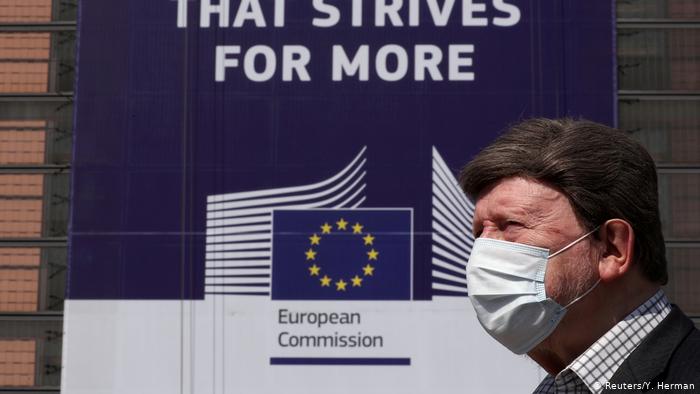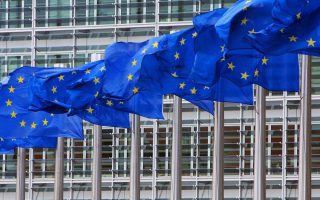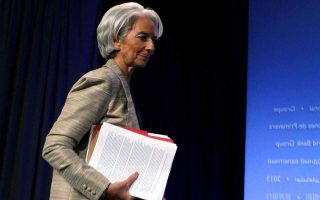Europe after Covid-19: Back to the old normal, but with new steroids?

It is now clear that in Europe, as elsewhere, neither health services nor social protection systems were in place when Covid-19 hit. The European “project” is again being tested. Cross-border restrictions on the sacrosanct free mobility of goods and labor are easier to justify than the emergence of nationalism, trade protectionism and “viral enabling political acts” as those introduced in Poland and Hungary.
The future course of events is uncertain. Still, as they should, economists are trying their best to use the forecasts from epidemiologists to assess the (sad) trade-off between imminent deaths versus ending physical distancing and opening up the economy. For guidance, they are drawing lessons from the global financial crisis of 2008 and, for Europe, from the euro crisis. Neither, however, is really comparable to the situation today. The cause of the former was the collapse of the financial sector that had reached the limits of “irrational exuberance.” The cause of the latter was the mounting trade and fiscal imbalances in several member-states that were unable to resort to devaluation. Still, it is interesting to start thinking what lies ahead.
At the national level, the expectation following the financial crisis was that the new normal will be an expanded role for government. True, an expansion of government has taken place but only in terms skyrocketing public debt that socialized the losses of the stock markets. In the meantime, health and social services have been privatized while the gig economy was deregulated. An example is Tony Blair’s private finance initiative (PFI) to fund the NHS, whose public cost is estimated to eventually reach 82 billion pounds for just 13 billion pounds’ worth of projects
At the global level, the expectation was we are experiencing not merely another turn of the business cycle, but a restructuring of the economic order. On this front the most important change has been the rebirth of Russia as a global economic (and political) power, while China now accounts for 16 percent of world output compared to only 4 percent at the times of SARS, the previous epidemic. If official statistics stand, China has contained the effects of the virus with positive expected growth reaching 9 percent in 2021. Europe is not expected to reach its pre-Covid-19 levels before the beginning of 2022 after a 7.5 percent recession in 2020.
Still, governments must react though few fundamentals are in place. What politicians are left with are some incidentals that they will surely mobilize, while taking care not to dismantle the system that sustains them. Even so, in response to Covid-19, bailout packages are being introduced and expanded by the day.
The global fiscal response has reached $8 trillion (10 percent of global GDP) but is bound to rise as more countries join the effort. A Spanish proposal calls on the European Union to create a 1.5-trillion-euro recovery fund to be financed through perpetual EU debt backed by the EU’s long-term budget. One cannot but pity the future generations who have yet to repay the increase in public debt to GDP (by 30 percentage points on average) in advanced economies after the financial crisis which, according to IMF, “would require fiscal adjustment over the next 20 years to first stabilize and eventually return public debt to pre-crisis levels.”
How much is spent to fight the pandemic is as important as how it will be distributed across the EU and within member-states. For example, because of pre-determined distribution criteria euroskeptic Hungary has received more support than worst-hit Italy. The proposal for issuing Eurobonds is once again dividing Europe. And on the health front, supplies ordered from abroad by countries at their peak of the curve are being rerouted elsewhere, if not mysteriously disappearing en route.
At the country level, policies and allocations of funds can draw lessons from the financial crisis. Monetary policy has reached the peak of its ineffectiveness with interest rates being near zero or even negative. Encouragingly, the European Central Bank is adding to EU efforts with force. ECB President Christine Lagarde has upgraded Mario Draghi’s “whatever it takes” motto to “there are no limits … for as long as needed.”
The big issue is how the private sector will respond. So far, the banks are reluctant to lend to new borrowers who most likely are facing bankruptcy. The few banks that have announced concessions swiftly clarified they meant forbearance, not forgiveness. Landlords still demand the payment of rents, also from students whose universities have closed, on the premise that they have access to student loans.
If domestic policies follow those adopted in 2008, they will reinforce previous globalization trends. The textbook reasoning that banking and finance serve the real economy and the real economy serves the needs of ordinary citizens has increasingly been bypassed since the 1980s. From 2008 to today, global GDP has increased by 35 percent, but the Dow Jones rose fourfold from 7,200 points in 2009 to 29,000 by mid-February 2020. The number of billionaires has risen to more than 2,000 from fewer than 800 in 2009. Oxfam estimates that just eight billionaires have as much net worth as “half the human race.”
The only silver lining among the policy responses so far is the inclusion of some measures to mitigate the adverse impacts on the social sectors. Still, rescue packages are grossly inadequate as bankruptcies among smaller firms are soaring along with unemployed workers. Lack of access to healthcare aggravates the vulnerabilities arising from the housing and working conditions of the poor, the elderly in care, members of minorities and those who do not have a home (the homeless) or lost it (refugees).
Though too early to call for its demise, the pandemic will pass. Will the global economy return to a new normal? Most likely “yes” but chances are it will be the old normal but with new steroids added to those introduced in 2008. As for Europe, a “New EU” is likely to follow the path of someone who tested Covid-19 positive: Either it will survive stronger with new antibodies or die.
Zafiris Tzannatos was chair of the Economics Department at the American University of Beirut. He is also a former advisor to the managing director as well as manager for the MENA region at the World Bank.





